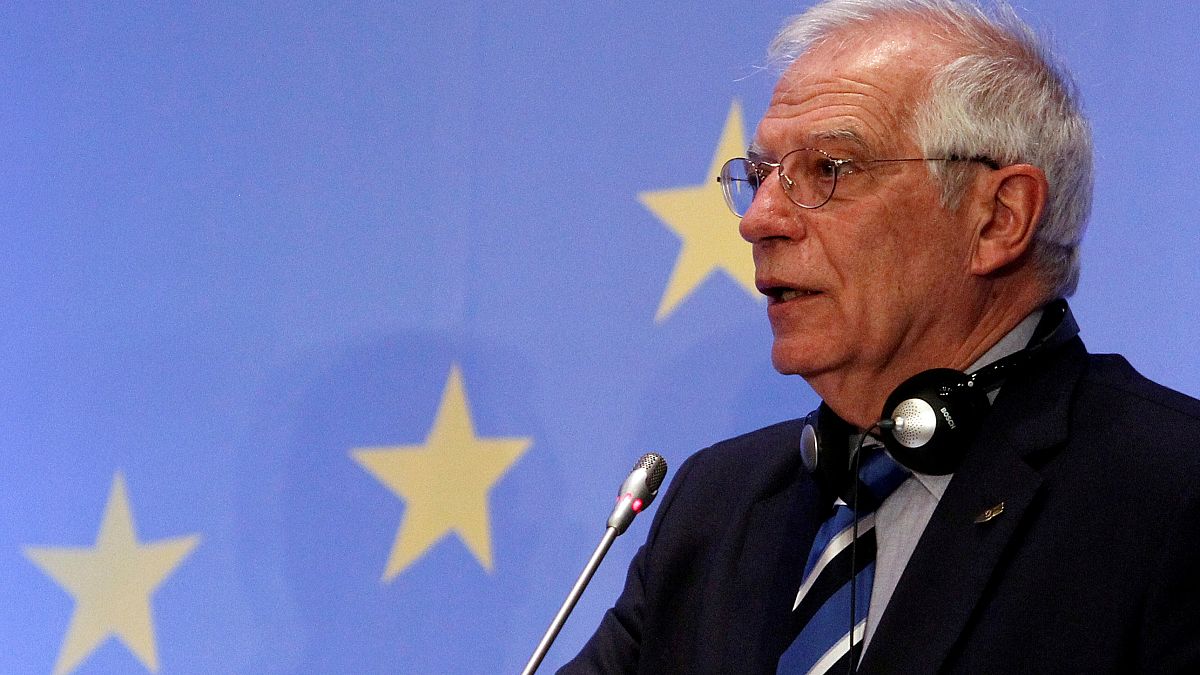Spanish socialist Josep Borrell, undiplomatic head of European diplomacy?
"Russia is an old enemy and a threat," said Spain's Foreign Minister Josep Borrell a few months ago, causing a strain in relations between Madrid and Russia.
Today, with Borrell's nomination to the post of EU High Representative for Foreign Affairs and Security Policy, this diplomatic encounter has taken on a new dimension. Borrell will now be the face of the EU to improve relations with the Kremlin.
"We have a new world that we could not have imagined five years ago. Trump was not president, there was no Brexit Many things have changed. Our old enemy, Russia, says again 'here I am', and it is again a threat, and China appears as a rival, " he had said.
The attack caused embarrassment to Fernando Valderrama, the Spanish ambassador in Russia, who was summoned to the Ministry of Foreign Affairs in Moscow to discuss the "unfriendly" statement.
If his nomination is accepted by the EU Parliament, Borrell will succeed Federica Mogherini, who has held the post since 2014.
Not his first controversy
No stranger to controversy, the 72-year old outspoken minister who is expected to be at the helm of international affairs, peace, and security, has in the past ruffled feathers in the same areas.
Borrell who has been active in Spanish and European socialist politics since the 1970s has often been criticised for being a "sympathiser" of Iran.
Late last year, Borrell came under fire for his comments on American independence, saying that "all they (Americans) had to do was kill four Indians, but apart from that it was very easy."
His relations with the US have been strained since he has publicly criticised US president Donald Trump. He has also been vocal about the situation in Venezuela and has been urging European leaders to intervene with help since the country descended into chaos.
Position on Catalonia
The Catalonia-born politician has been a staunch pro-EU supporter and has criticised Catalonia's secession movement which led to a failed declaration of independence in October 2017.
Critics have taken to social media platforms to express their disapproval. The #StopBorrell hashtag has gone popular on Twitter.
Jorge Juan Morante, political scientist and European affairs analyst told Euronews that Borrell's crusade against the Catalan independence movement would not influence the position of the bloc, which has always favoured the Spanish government.
"The Commission has always respected the sovereignty of Spain and has not intervened, I do not think the situation will be any different with or without Borrell," he said.
Early this year, Borrell walked out of an interview on German public broadcaster Deutsche Welle when asked about the treatment of jailed Catalan independence leaders.
Morante pointed out that Borrell had gained experience as head of Spanish diplomacy. "That can soften what your profile is and moderate your comments," he added, noting that it would also depend on his advisory cabinet.
Who is Borrell?
Borrell who was born in a small village in Catalonia went on to study aeronautical engineering in Madrid, before heading to Stanford in the US for a master's degree and then returning to Paris for another degree.
In 1979, he made his foray into politics as a city councillor on the outskirts of Madrid. He was then appointed to a post in the economy ministry, and was elected to the Congress of Deputies for Barcelona in 1986.
He was Minister of Public Works and Transport during the presidency of Felipe González, at the beginning of the 1990s, and he aspired to lead the party in the 1998 primaries, although he decided to resign.
He served as European Parliament president from July 2004 to January 2007.
Since 2018, he has been Spain's foreign minister under socialist prime minister Pedro Sanchez.
Corruption charges
In 2015 he was forced to leave the board of renewable energy group Abengoa when it was disbanded due to the protocols of bankruptcy, which the group declared soon after. In 2018, during Borrell's tenure as Foreign Minister, it came to light that he had ordered the sale of 9,030 euros in Abengoa shares while he was a director of Abengoa and, crucially, before it declared bankruptcy. Because of this, Borrel was fined 30,000 euros for insider trading.
Borrell acknowledged that the sale "was not adequate" at the time it was made, not because of "the appearance of irregularity" it could have generated, but rather he described it as "a minor problem" that did not affect his "suitability to exercise the ministerial function".
For the 2000 presidential elections in Spain, he was named candidate from the socialist party. He withdrew his candidature amid financial scandals involving two of his former co-workers.
_This article was updated on August 1 to show that Borrell was not forced to stand down from the Abengoa board due to the financial irregularities that were discovered years later, but because boards must necessarily disband when bankruptcy is declared. _
